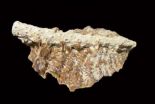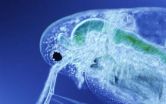(Press-News.org) Extreme weather such as hurricanes, torrential downpours and droughts will become more frequent in pace with global warming. Consequently, this increases the risk for species extinction, especially in bio diverse ecosystems such as coral reefs and tropical rainforests.
Human impact means that flora and fauna become extinct at a rate 100 times higher than normal. Climate change has been deemed as one of the main causes of species depletion.
A research team in theoretical biology at Linköping University in Sweden has, through the use of mathematical modelling and simulation, studied how the dynamics of different types of ecosystems may be affected by significant environment fluctuations.
Linda Kaneryd, doctoral student and lead author of a study recently published in the journal, Ecology and Evolution, says the results were surprising.
"Several previous studies of food web structures have suggested that species-rich ecosystems are often more robust than species-poor ecosystems. However at the onset of increased environmental fluctuations, such as extreme weather, we see that extreme species-rich ecosystems are the most vulnerable and this entails a greater risk for a so-called cascading extinction."
In a rainforest or on coral reef there are a wide variety of species of primary producers such as green plants and algae. Since they are competitors, relatively few individuals of the same species exist, subjecting them to a greater risk of extinction should external conditions change. This could result in a depletion of food sources for a species of herbivores that, in turn, affects a predator at the top of the food chain. Biologists call this transformation a cascading extinction.
The opposite would apply to an ecosystem whereby few species exist in large numbers and animal species are adaptable generalists.
The researchers create their model food webs following on from their experiences with real ecosystems; what eats what, the composition of the species' life cycles, and how they interact with others. In this study, external conditions are represented as an increasing and unpredictable variation.
"The model we worked with is quite typical. The next step is to introduce actual, detailed climatic data," informs Bo Ebenman, Professor of Theoretical Biology who supervised Linda Kaneryds thesis.
### Article: Species-rich ecosystems are vulnerable to cascading extinctions in an increasingly variable world by L. Kaneryd, C. Borrvall, S. Berg, A. Curtsdotter, A. Eklöf, C. Hauzy, T. Jonsson, P. Münger, M. Setzer T. Säterberg and B. Ebenman. Ecology and Evolution March 30, 2012 ("Early View").
Extreme weather threatens rich ecosystems
2012-04-02
ELSE PRESS RELEASES FROM THIS DATE:
IOM report identifies public health actions for improving the lives of those with epilepsy
2012-04-02
WASHINGTON — An estimated 2.2 million people in the United States live with epilepsy, a complex brain disorder characterized by sudden and often unpredictable seizures. The highest rate of onset occurs in children and older adults, and it affects people of all ethnicities and socio-economic backgrounds, yet this common disorder is widely misunderstood. Epilepsy refers to a spectrum of disorders with seizures that vary in type, cause, severity, and frequency. Many people do not know the causes of epilepsy or what measures to take if they witness a seizure. A new report ...
Honeycombs of magnets could lead to new type of computer processing
2012-04-02
Scientists have taken an important step forward in developing a new material using nano-sized magnets that could ultimately lead to new types of electronic devices, with greater capacity than is currently feasible, in a study published today in the journal Science.
Many modern data storage devices, like hard disk drives, rely on the ability to manipulate the properties of tiny individual magnetic sections, but their overall design is limited by the way these magnetic 'domains' interact when they are close together.
Now, researchers from Imperial College London have ...
Declines in Caribbean coral reefs pre-date damage resulting from climate change
2012-04-02
The decline of Caribbean coral reefs has been linked to the recent effects of human-induced climate change. However, new research led by scientists at Scripps Institution of Oceanography at UC San Diego suggests an even earlier cause. The bad news – humans are still to blame. The good news – relatively simple policy changes can hinder further coral reef decline.
Employing a novel excavation technique to reconstruct the timeline of historical change in coral reefs located on the Caribbean side of Panama, a team of scientists led by Scripps alumna Katie Cramer and current ...
Published study finds usage of, reccomendations for dietary supplements high among dietitians
2012-04-02
WASHINGTON, D.C. -- Registered dietitians are one of several groups of healthcare professionals who report using dietary supplements as part of their health regimen, according to a newly published study in Nutrition Journal, a peer-reviewed, online journal that focuses on the field of human nutrition. According to data from the 2009 "Life…supplemented" Healthcare Professionals (HCP) Impact Study, 74 percent of dietitians use dietary supplements regularly while 22 percent reported using them occasionally or seasonally. The data also indicated that an overwhelming percentage ...
Amyloid beta in the brain of individuals with Alzheimer's disease
2012-04-02
The deposition of amyloid beta in the brain of individuals with Alzheimer's disease is the focus of much research into both its cause and treatment.
While there may not be a consensus as to whether the deposition contributes to the disease or is a consequence of the disease, there is agreement that it is not favoured thermodynamically, meaning that something else is promoting the process.
Other proteins are often co-deposited in vivo with amyloid beta and one such protein is serum amyloid P component (or SAP). Recent evidence has suggested that SAP is elevated in Alzheimer's ...
Tales from the crypt lead researchers to cancer discovery
2012-04-02
HUNTSVILLE, Ala – Tales from the crypt are supposed to be scary, but new research from Vanderbilt University, the HudsonAlpha Institute for Biotechnology and colleagues shows that crypts can be places of renewal too: intestinal crypts, that is. Intestinal crypts are small areas of the intestine where new cells are formed to continuously renew the digestive tract. By focusing on one protein expressed in our intestines called Lrig1, the researchers have identified a special population of intestinal stem cells that respond to damage and help to prevent cancer.
The research, ...
Newly discovered foot points to a new kid on the hominin block
2012-04-02
It seems that "Lucy" was not the only hominin on the block in northern Africa about 3 million years ago.
A team of researchers that included Johns Hopkins University geologist Naomi Levin has announced the discovery of a partial foot skeleton with characteristics (such as an opposable big toe bone) that don't match those of Lucy, the human ancestor (or hominin) known to inhabit that region and considered by many to be the ancestor of all modern humans.
The discovery is important because it provides first-ever evidence that at least two pre-human ancestors lived between ...
US stockpile security and international monitoring capabilities strengthened, says new report on technical issues behind the comprehensive nuclear test ban treaty
2012-04-02
WASHINGTON — The United States is now in a better position than at any time in the past to maintain a safe and effective nuclear weapons stockpile without testing and to monitor clandestine nuclear testing abroad, says a new report from the National Research Council. The report, requested by the Office of the Vice President and the White House Office of Science and Technology Policy, reviews and updates a 2002 study that examined the technical concerns raised about the Comprehensive Nuclear Test Ban Treaty (CTBT). The report does not take a position on whether the U.S. ...
Planet under Pressure conference, London: Final statement
2012-04-02
Scientists issued the first "State of the Planet" declaration at a major gathering of experts on global environmental and social issues in advance of the major UN Summit Rio+20 in June.
The declaration opens: "Research now demonstrates that the continued functioning of the Earth system as it has supported the well-being of human civilization in recent centuries is at risk." It states that consensus is growing that we have driven the planet into a new epoch, the Anthropocene, where many planetary-scale processes are dominated by human activities. It concludes society ...
Evolving to fight epidemics: Weakness can be an advantage
2012-04-02
When battling a deadly parasite epidemic, less resistance can sometimes be better than more, a new study suggests.
A freshwater zooplankton species known as Daphnia dentifera endures periodic epidemics of a virulent yeast parasite that can infect more than 60 percent of the Daphnia population.
During these epidemics, the Daphnia population evolves quickly, balancing infection resistance and reproduction.
A new study reveals that the number of vertebrate predators in the water and the amount of food available for Daphnia to eat influence the size of the epidemics and ...



